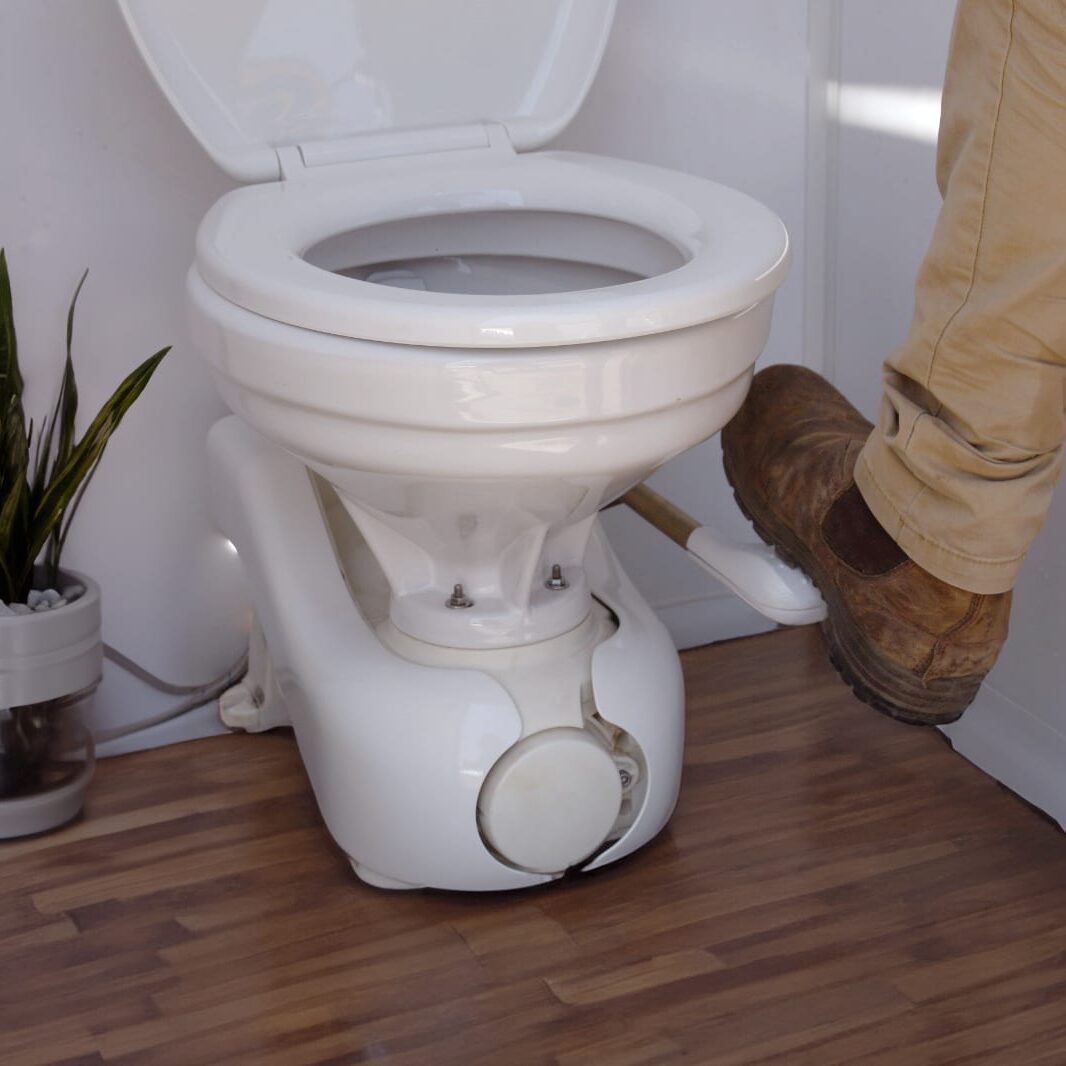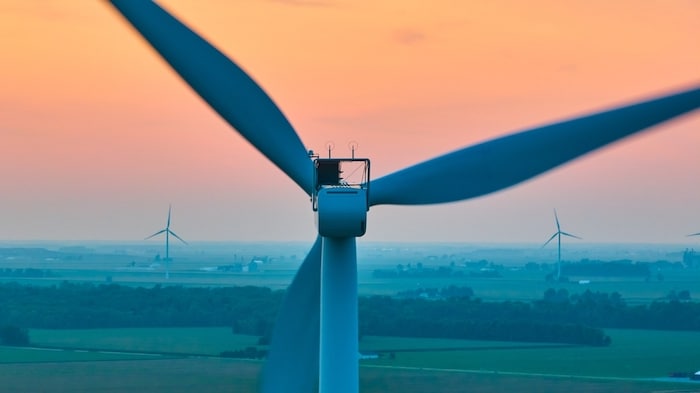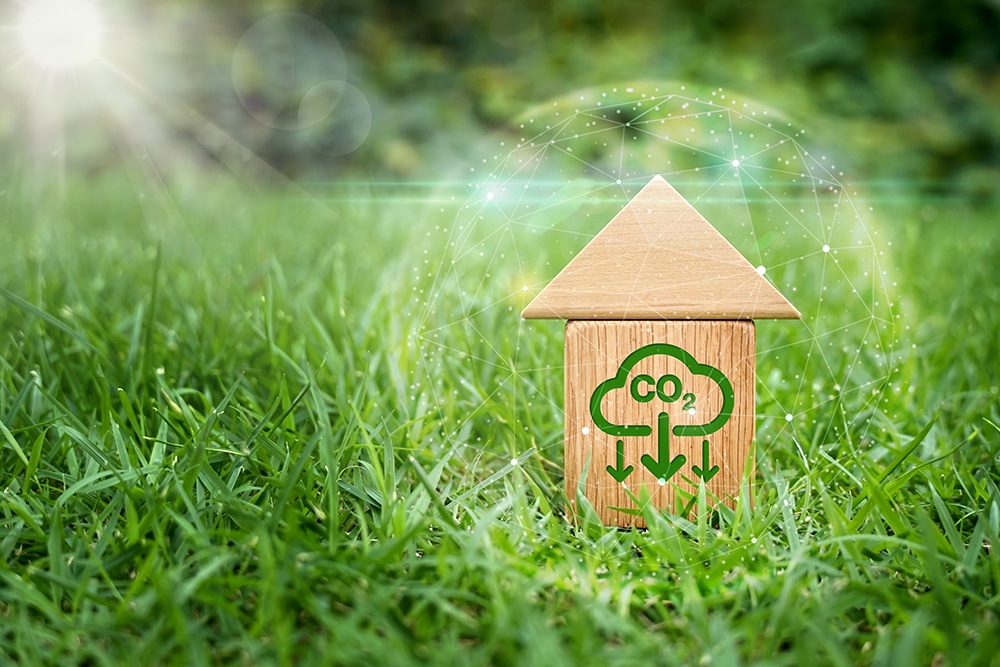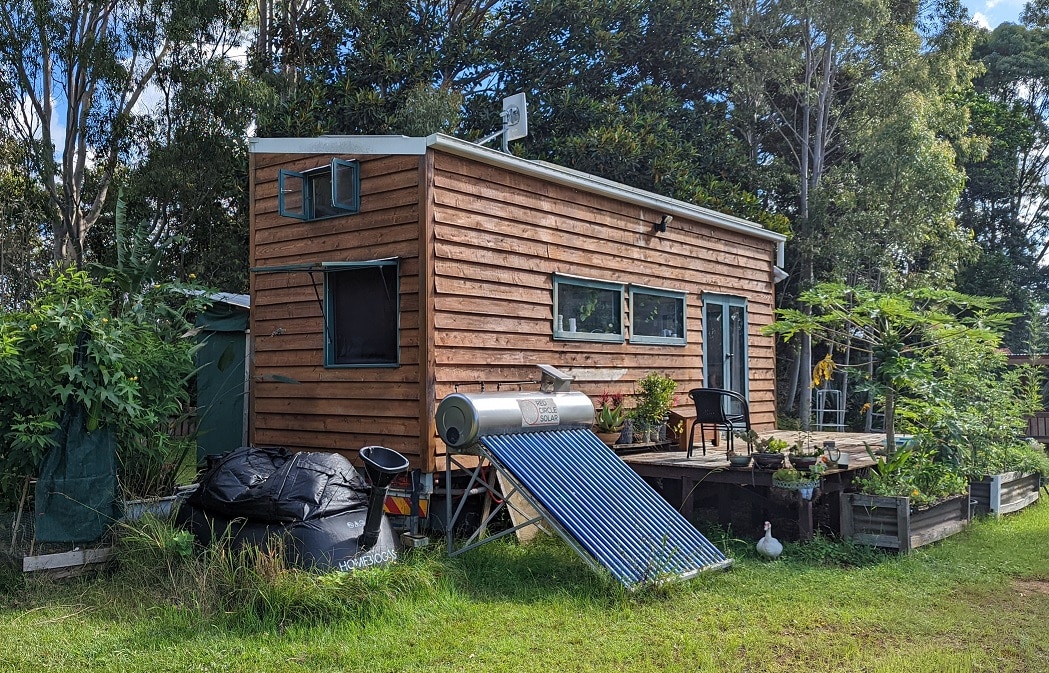
Say hello to Annett and Paul!
Meet Annett and Paul! The couple lives in Byron Bay, Australia, and are passionate about minimizing their impact on the planet. With an abundance of solar energy available to them in Australia, Annett and Paul thought it was a shame not to make the most of the resource. They left the city behind to start a new chapter in the countryside where they now live off-grid, in a tiny house on wheels. The couple has been living in their tiny house for over four years and still love it! In the right climate, they believe that living off solar power is achievable and fairly simple.
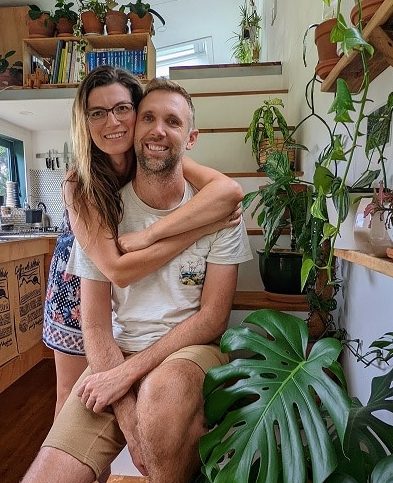
Even after all these years using the biogas system, it still makes us giddy to be able to produce our own cooking gas.
Building a Tiny and Mighty House
With day jobs working in communication and IT, it took the couple one year’s worth of weekends to build their tiny (dream) house. Since they built the house on a paddock with no electrical outlets closeby, the first thing Annett and Paul did was install the solar panels, batteries and inverter in order to generate electricity to run the power tools. They finished building their house in 2018, with an off-grid setup that includes 6 solar panels, a 4kW inverter, 24 solid state batteries (lithium-ion wasn’t common back then in Australia), a 165L solar hot water unit, a 10,000L water tank and a HomeBiogas system.
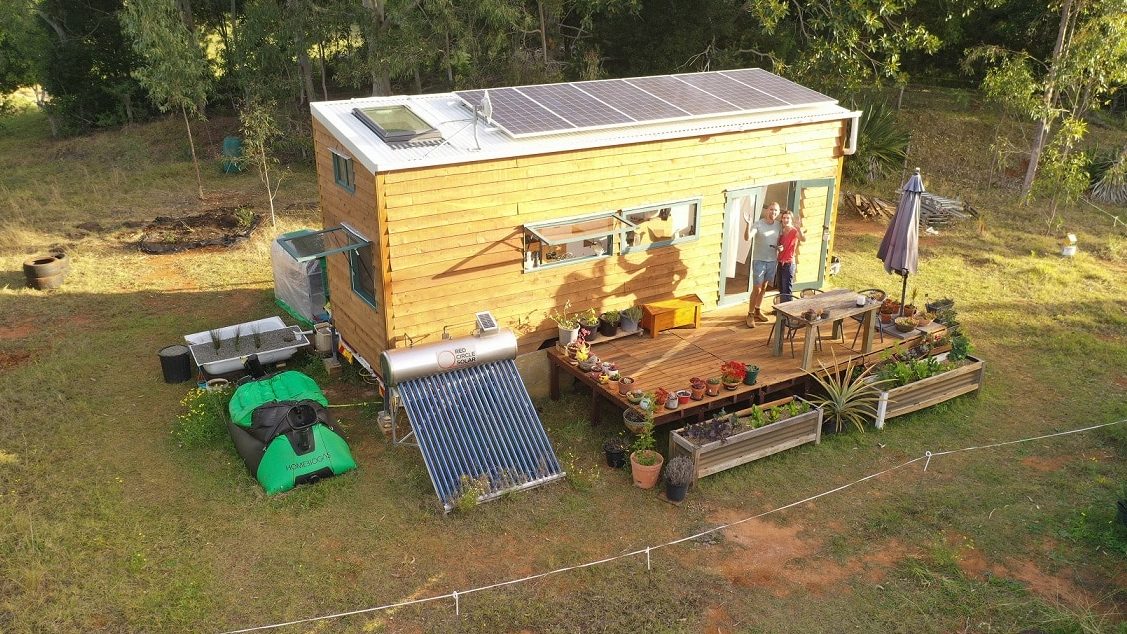
Thrilled to Close the Loop
The HomeBiogas system is a great option for off-grid living and it offers a lot of benefits to people with a lifestyle like Annett and Paul. They explained that the system serves three purposes for them, and in doing so, allows them to close the loop. Firstly, they use the system to dispose of their toilet waste. Second, it provides them with cooking gas. And finally, they receive liquid fertilizer for their garden. “We’re especially stoked about using the biogas system for our toilet waste because it closes the loop and it’s a very easy, quick and clean way of getting rid of our waste,” the pair shared. “As a bonus, we get cooking gas. How amazing. And our cat contributes too!”
Producing our own cooking gas is empowering and the liquid fertilizer benefits my garden and also us. The best part about it is that it’s a closed system!
Self-Sustainable Living
Annett and Paul are passionate about renewable energy, reducing plastic waste, gardening, composting and living a life that they can sustain. They marvel at how they are sometimes unaware when there is an occasional power cut in their area since they generate their own electricity and are therefore unaffected.
Over the years, and especially since moving to their tiny home, the couple has managed to drastically reduce their carbon footprint. They even transitioned to an electric car last year, which when at home, they manage to keep charged predominantly using solar power. “We don’t feel like we’re missing out on any luxuries, quite the opposite,” they explained. “This lifestyle of downsizing and living a simpler life, has enabled us to cut expenses in terms of rent and utilities and we were able to build up our savings.”
Annett and Paul share a love of permaculture gardening and use methods and systems that create resilience and make them less dependent on the big supply chains. Their garden provides them with a variety of herbs, leafy greens as well as seasonal fruit and vegetables, which they feed with the organic fertilizer produced in their HomeBiogas system. They take so much joy in knowing exactly where their produce comes from.
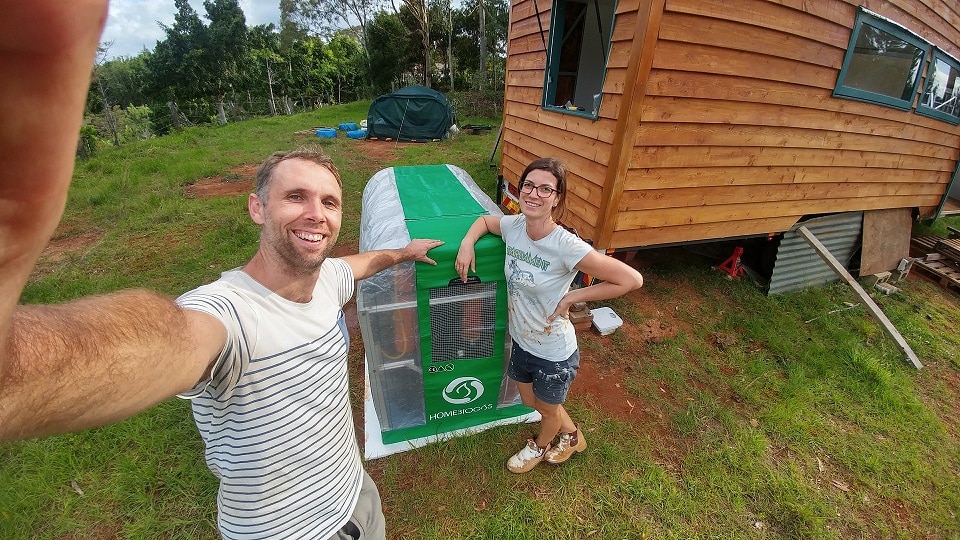
HomeBiogas in Rough Times
While Annett and Paul use solar power to run appliances and also have an induction cooktop for daily use, they rely on biogas on overcast days or in the morning and at night when the sun is not. The HomeBiogas team was thrilled to hear that this setup works really well for them. The couple shared that they had recently experienced a disastrous storm in their region and their batteries got low. With the biogas they’d been producing however, they were still able to cook hot meals and make warming tea and coffee.
Since they live in the subtropics, gas production is ongoing and constant and while biogas production slows down in the winter months as it cools down they still have enough gas to cook a meal on their biogas stove everyday and enjoy coffee and tea.
Recently, we had a disastrous storm in our region and our batteries got low, but thanks to the biogas, we were still able to cook hot meals and make teas & coffees.
Love for Nigel the Biogas Digester
Annett and Paul named their HomeBiogas system Nigel saying that the unit is like a silent butler. The couple loves that with their HomeBiogas system, none of their organic waste is ever ‘wasted,’ and that they’re able to cook meals even on overcast days when they need to conserve their batteries, without having to use LPG-gas powered alternatives.
With all of the benefits they enjoy, Annet and Paul feel like a biogas system makes a lot of sense when living off-grid. They were inspired by the industrial-scale biogas facilities in Europe and thought that it would be fantastic to add a household-size unit to their setup.
When asked if they would recommend that other people invest in a HomeBiogas system, Annett and Paul said they’ve already done so many times, noting that it’s a simple system that does not require any maintenance and it works. “It’s a fantastic toilet waste solution, producing our own cooking gas is empowering and the liquid fertilizer benefits my garden and also us,” they explained. “So the best part about it is that it’s a closed system!”
Interested in a HomeBiogas System?
You don’t need a tiny house to enjoy the big benefits of HomeBiogas! Whether you’re living off-grid and self-sustainably or are simply looking for a way to reduce your carbon footprint, now is the time to start creating renewable, clean energy. See which HomeBiogas system is right for your life!
For day-to-day updates on their beautiful, off-grid life, follow Annett & Paul on Instagram and Facebook. Visit www.livingtinyandgreen.com for full documentation of their tiny build and off-grid setup!

